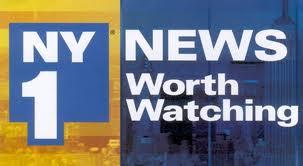How to Increase Your Financial Literacy – Time Warner News – New York 1
- April 23, 2015

When it comes to being financially literate, Americans think they are making the grade. In a recent survey conducted by the National Foundation for Credit Counseling, 59 percent of those polled gave themselves an A or a B on their money know-how. However, Chris Dlugozima of GreenPath Financial Wellness says when he actually starts to quiz people, those grades falter.
“Have you seen your credit report? Not just do you budget, but do you have a written budget that you actually follow? At least anecdotally from the groups that I serve, it seems that number is lot less,” says Dlugozima.
In fact that same NFCC survey found that 60 percent of respondents don’t operate with a budget. But even if you are in the minority that has one on paper, Dlugozima says that’s only half the battle. You also have to stick to it, which can only been done by actively tracking what’s coming in and what’s going out – not just the big fixed expenses like your mortgage or rent, or student loans, but everything you spend money on.
“Like your groceries, clothing, entertainment. That’s why it’s so important to track your budget, to be realistic about what you are spending and to recognizing if you might be overspending in a particular area,” says Dlugozima.
Making a budget shouldn’t be too difficult. Lots of apps and programs will guide you through it. However, if you would like more personalized help, that is available too.
Looking back at the survey, while 3 out of 4 people said they would benefit from getting advice from a professional, that doesn’t mean they’re actually seeking it. In fact, Dlugozima says 40 percent of the people who make an appointment with one of his counselors is a no-show.
“It’s a difficult thing. It’s one thing to say you want advice, another thing to actually expose your dirty laundry as it were in front of somebody,” he says.
He adds that a counselor from a reputable, nonprofit organization will be confidential and compassionate. In addition, he stresses that seeking help does not necessarily mean handing over control.
“Plenty of organizations will offer free services just to give the advice, just to sit down with somebody for an hour and more and help them formulate a plan, even if it is one that they ultimately will handle on their own,” says Dlugozima.
In other words, be your study buddy so that you really can earn that A in financial knowledge.
